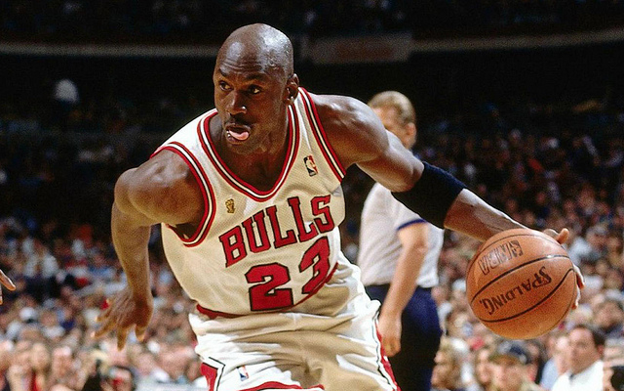Isaiah Shim
Sports Editor
Growing up I wanted to “Be Like Mike”. Almost everyone who plays the game of basketball did and still does, and even though I never got to watch him play live, I still idolized him. So when it was announced that ESPN would be airing a documentary series about Michael Jordan and the Chicago Bulls, I was ecstatic. For those familiar with ESPN’s 30 for 30 documentary series, The Last Dance is 30 for 30 on steroids. 10 episodes, an hour a piece, 2 episodes every Sunday for five weeks, this documentary was shaping up to be one to remember.
The Last Dance follows the Chicago Bulls, led by Michael Jordan, throughout the 1990’s in which they won six championships, winning three in a row on two separate occasions. The dominance of the Bulls and more specifically Jordan is what cements him as the greatest basketball player of all time in many people’s eyes.
The documentary follows a non-linear timeline, constantly going back to the 1998 Finals, the last championship of the second three-peat, dubbed “The Last Dance.”
Jordan is obviously the main focus, but other stars of this dynasty were highlighted as well. Scottie Pippen, Dennis Rodman and the zen master himself Phil Jackson got the spotlight in their own episodes. It was interesting to see everyone’s journey to the Bulls and each player or coach was given enough time to shine.
On top of that, everything and anything you could imagine that happened between games was covered. From punching teammate Steve Kerr in the face during a practice to Jordan walking into his teammates’ hotel room and seeing cocaine everywhere, no stone was left unturned.
Since the last championship that the Bulls won happened half a year before I was born, I only really knew that they won six championships. So hearing some of these stories for the first time was fascinating, reminiscent of the fly-on-the-wall feeling that HBO’s Hard Knocks evokes. In particular, I had no idea about the tension between management and the players, and it was compelling to see that relationship captured on camera.
General manager Jerry Krause was painted as the “villain” of the documentary because of his role in disbanding the dynasty after the 1998 season. This included him refusing to give Scottie Pippen the money he deserved and telling Phil Jackson prior to the season that 1998 would be his last year as coach, even though Jordan had made it clear that he would not play for any other coach.
On top of that, Krause’s ego was cited as the biggest reason why there was conflict to begin with. Krause would refuse to acknowledge the greatest of Jordan, as well as infamously claiming that organizations win championships, not players and coaches. This resulted in him getting verbally berated by the players, mainly Pippen and Jordan.
Seeing this relationship caught on camera was extremely compelling, as this amount of tension is something that you generally do not see in professional sports today.
What is interesting though is Krause was the one who put the pieces around Jordan and was a large part of building the dynasty. Krause was the one who made a draft-day deal with Seattle to acquire Scottie Pippen, while drafting Horace Grant a few picks later. He was also the one with the foresight to trade Charles Oakley for Bill Cartwright and later trade Will Perdue for Dennis Rodman, two trades that transformed the team into title contenders.
The documentary takes you through each of the Bulls six championship playoff runs, interviewing players from the Bulls and even their opponents. Magic Johnson, Larry Bird, Charles Barkley, and Isiah Thomas were a few of the notable players interviewed throughout the documentary.
As a Seattle Supersonics fan, it was a bittersweet moment watching an in-depth look at the 1996 NBA Finals, in which Jordan and company took down the likes of Gary Payton and Shawn Kemp in six games.
If you are a fan of basketball, then you will enjoy this documentary. If you are a fan of sports or any sort of competition, you will enjoy this documentary. I was immensely satisfied as to how it all wrapped up. As a fan though, you are left to wonder: if Jordan never retired and if management never broke up the team, how many more could they have won?


















